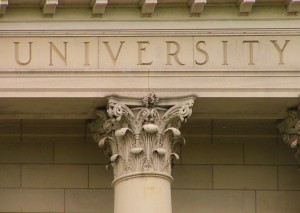
 Inside Higher Ed has issued its 2015 Survey of institutional presidents and, as in years past, it makes for very interesting reading. The Survey is based on responses from 647 institutions, including 338 public institutions, 262 private institutions, 26 college and university systems, and 21 for profit institutions. A number of topics were surveyed, including government oversight, financial sustainability, sexual assault, race relations and faculty hiring.
Inside Higher Ed has issued its 2015 Survey of institutional presidents and, as in years past, it makes for very interesting reading. The Survey is based on responses from 647 institutions, including 338 public institutions, 262 private institutions, 26 college and university systems, and 21 for profit institutions. A number of topics were surveyed, including government oversight, financial sustainability, sexual assault, race relations and faculty hiring.
Here are a few of the highlights:
-
With respect to the Obama Administration’s rating program for colleges and universities, 56% of respondents gave the program a grade of “D” or “F.”
-
There were also varying degrees of support (or lack of support) for the various criteria featured in the program for rating institutions. Using a 1 to 5 scale (with 1 being “not at all supportive” and 5 being “extremely supportive”) the noted percentages of institutions gave the listed features a 4 or 5 level of support:
-
percentage of first generation students enrolled (49%)
-
percentage of Pell Grant-eligible students (48%)
-
degree completion rate (47%)
-
net price (46%)
-
graduate employment rate (42%)
-
loan default rates (38%)
-
federal graduation rates (29%)
-
graduate income level (18% — 36% actually indicated that they were not “at all supportive” of the use of this factor).
-
With respect to budget and finances, worries persist. On the same 1 to 5 scale:
-
80% rated their confidence in the sustainability of their own financial model over the next five years at 3 or above. Private nonprofit institutions came in at 84%, while public institutions were notably lower at 75%. More notably, in the 2014 Survey, confidence was actually higher, with 84% overall providing a score of 3 or above when looking at the sustainability of their own financial model over the (then) next 5 year period. Private nonprofit institutions came in at 87% and public institutions at 84%. Thus, across all institutions generally, presidents are less optimistic and, clearly, public institutions are feeling the pinch even more than private nonprofit colleges and universities.
-
In the 2015 Survey, looking out over a 10 year horizon, only 70% of institutions overall have confidence in the sustainability of their financial model at a level of 3 or above. For private nonprofit institutions the number is 78%, while for public institutions it is 65%. In the 2014 survey, 79% of institutions overall rated their confidence level over the next 10 years at 3 or above, with 81% of private nonprofit institutions providing that rating, and 75% of public institutions. Again, we see outlooks trending downward.
-
Only 28% of presidents responded to the statement “The economic downturn that started in 2008 is effectively over at my institution” with a 5 (“strongly agree) or 4 rating. On the other hand, 48% of respondents replied with a 1 (“strongly disagree”) or 2 rating, with 52% of public institutions providing that 1 or 2, and 43 of private nonprofit institutions providing a 1 or 2.
-
With respect to the issue of sexual assaults:
-
63% responded that female students are a lot safer (2%) or somewhat safer (61%) as a result of the federal government’s efforts in this area
-
57% of presidents (64% in the public sector but, somewhat surprising, a much lower 49% in the private nonprofit sector) agree with the use of a preponderance of the evidence standard (as opposed to a beyond a reasonable doubt standard) in adjudicating such cases in on-campus disciplinary proceedings
-
Most institutions, 71%, believe that laws like California’s “affirmative consent” law are likely to be “not too effective” (44%) or “not at all effective” (27%) in preventing sexual assaults on campus
-
32% of institutions responded with a rating of 5 (“strongly agree”) or 4 that sexual assault is prevalent at U.S. colleges and universities (another 42% gave a 3 rating), but only 6% provided a 5 or 4 rating that it is prevalent on their campus (17% provided a rating of 3)
-
52% answered with a 4 or 5 that fraternities play a disproportionate role in assaults
-
77% answered with a 4 or 5 that their campus is doing a good job protecting women from sexual assault
-
90% answered with a 4 or 5 that their institutions provide appropriate due process for those accused of sexual assault
-
Somewhat surprisingly, only 46% responded with a 4 or 5 that local law enforcement should be responsible for handling all sexual assaults on campus
-
With respect to race relations, 81% rated the state of race relations on their campus as excellent or good, but only 43% felt that race relations on college campuses generally were excellent or good.
-
With respect to faculty issues
-
55% responded with a 5 (strongly agree) or 4 that they should take a more active role in decisions about which faculty to hire, with 66% responding with a 5 or 4 that they should take a more active role in tenure decisions
-
62% responded that they do not conduct their own reviews or largely defer to department decisions in the faculty hiring process, while 52% (55% in the public sector and 46% in the private nonprofit sector) do not conduct their own reviews or largely defer to departmental reviews in tenure cases.
The full Survey provides much more information, broken down by type of institution, and, as in years past, is “must” reading to ascertain what’s on the mind of college and university presidents.